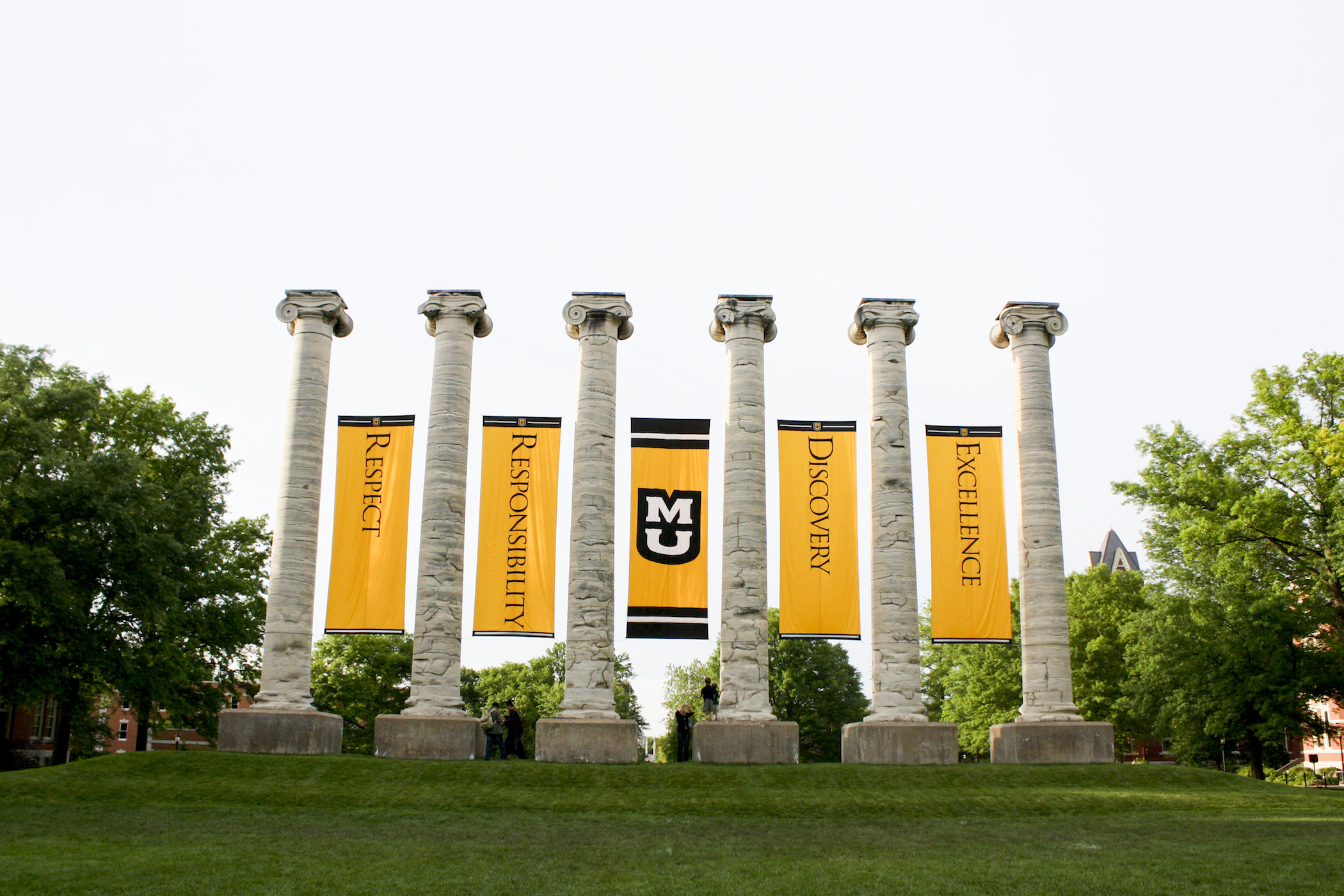J. Perry Gustafson Award
The J. Perry Gustafson Award for Outstanding Graduate Research in the Life Sciences is awarded annually to one Ph.D. student at the University of Missouri in recognition of his or her academic achievements and the quality of his or her independent research and who demonstrates great promise for achieving wider recognition.
Award
The recipient of the J. Perry Gustafson Award for Outstanding Graduate Research in the Life Sciences will receive a one-time $2000 unrestricted award added to their stipend.
Eligibility:
- Must be conducting life sciences research as a Ph.D. student in the Interdisciplinary Plant Group, the College of Veterinary Medicine, the Comparative Medicine Program, the Division of Biological Sciences, or the College of Agriculture, Food, and Natural Resources.
- Must be a doctoral candidate and have recently completed the comprehensive examination and be more than one year away from graduation.
- Must be available to accept the award in person during Life Sciences Week.
Application
The application packet shall include in the following order:
- A completed cover sheet (signed & dated)
- One page summary of dissertation research
- Complete CV
- Unofficial transcript of graduate work to date
- 3 letters of reference from faculty (one must be from primary Ph.D. advisor)
Application materials must be compiled as a single PDF document and submitted as an email attachment to Melody Kroll at krollmm@missouri.edu by no later than 5:00 PM on the first Monday in March. Name the file as follows: ApplicantName_GustafsonAward.pdf (e.g., TrumanTiger_GustafsonAward.pdf)
Questions: Contact Melody Kroll at krollmm@missouri.edu or 884-4144.
J. Perry Gustafson Biography
J. Perry Gustafson spent his childhood years on a farm near Greeley, Colorado. Livestock and a scholarship from Union Pacific Railroad paid his way through Colorado State University, where he earned both his bachelor’s degree in crop science and his master’s degree in agronomy in 1967 and 1968, respectively. He went on to earn his doctorate in genetics from the University of California-Davis in 1972. During his time at UC-Davis, Gustafson met and became fast friends with Norman E. Borlaug, 1970 Nobel Peace Prize winner, and started what would amount to a 40-year career dedicated to wheat improvement and training farmers, breeders, and young scientists across the world. From 1977-1981, he was a faculty member at the University of Manitoba in Winnipeg, Canada, where he worked on triticale (a rye-wheat hybrid). In 1981, he was recruited by Professor Ernie Sears to carry forward the legendary wheat genetics program he built at the University of Missouri as part of the U.S. Department of Agriculture (USDA) Agricultural Research Service’s (ARS) Plant Genetics Research Unit. He also held an adjunct faculty position in the Division of Plant Sciences at MU. At MU, Dr. Gustafson developed an internationally known and respected research program in the area of wheat cytogenetics and was an exemplary mentor to 20 Ph.D. students, 3 M.Sc. students, 3 Fulbright Scholars, and 24 international scientists.
Dr. Gustafson’s research focused on understanding the genetic mechanisms that control the introduction and expression of genes in wheat using genetic, cytogenetic and molecular approaches. He published over 150 peer-reviewed papers and 26 peer-reviewed book chapters and co-edited 14 books. For his scientific contributions, he was elected a Fellow of the Crop Science Society of America (1995), the American Society of Agronomy (1998), and the American Association for the Advancement of Science (1999). The USDA-ARS Midwest Area also named him Research Scientist of the Year (2005).
Dr. Gustafson served as a scientific advisor on 25 United Nations (UN) Food and Agricultural Organization (FAO) and the International Atomic Energy Agency (IAEA) international crop and biotechnology transfer programs. As part of his work with the UN FAO/IAEA, he aided scientists from around the globe to adapt techniques from classical breeding to molecular marker systems for use in improving food production. These efforts led to the development of new cultivars as well as the development and improvement of laboratories, technologies, and breeding programs in countries around the world. In addition to developing new germplasm and cultivars. Dr. Gustafson had a significant impact on altering the agricultural foundation of various host countries through education and training. His international education efforts include teaching a wheat plant breeding course at the International Maize and Wheat Improvement Center (CIMMYT) in Mexico every year since 1975. In association with his work at CIMMYT, Dr. Gustafson also participated in the Jeannie Borlaug Fellowship “Women in Triticum,” a Gates Foundation Initiative that funds women who do wheat research in developed and developing countries. He hosted international Borlaug Scholars who came to MU for short-term scientific training and collaborative research exchanges.
In addition to all this, Dr. Gustafson also has served as an advisor on the development and implementation of USDA Foreign Agricultural Service (FAS) projects in India, Poland, Czech Republic, and Bangladesh; served on the editorial boards of several international scientific journals; coordinated the Stadler Genetics Symposium at MU; served on the United Kingdom Biotechnology and Biological Sciences Research Council Panel evaluating the International Grass and Environmental Research Institute; served on the UK Biotechnology and Biological Sciences Research Council Crop Science Initiative panel to establish policy toward improving British and third world agriculture production; and chaired the International Plant Molecular Biology Congress in 2009.

Dr. Gustafson in The Gustafson Glasshouse at the University of Nottingham, U.K.
Among many honors Dr. Gustafson has received in recognition for his work in promoting international education and agricultural improvement are medals from institutes in Poland, Greece, Portugal, and Bangladesh. He was elected an Einstein Professor of the Chinese Academy of Sciences, given an honorary doctorate from Banat University in Romania, and is an honorary professor at Yangzhou University in China and the University of Nottingham, UK. In 2013, the University of Nottingham named and dedicated a greenhouse complex used for wheat research on its campus in his honor.


